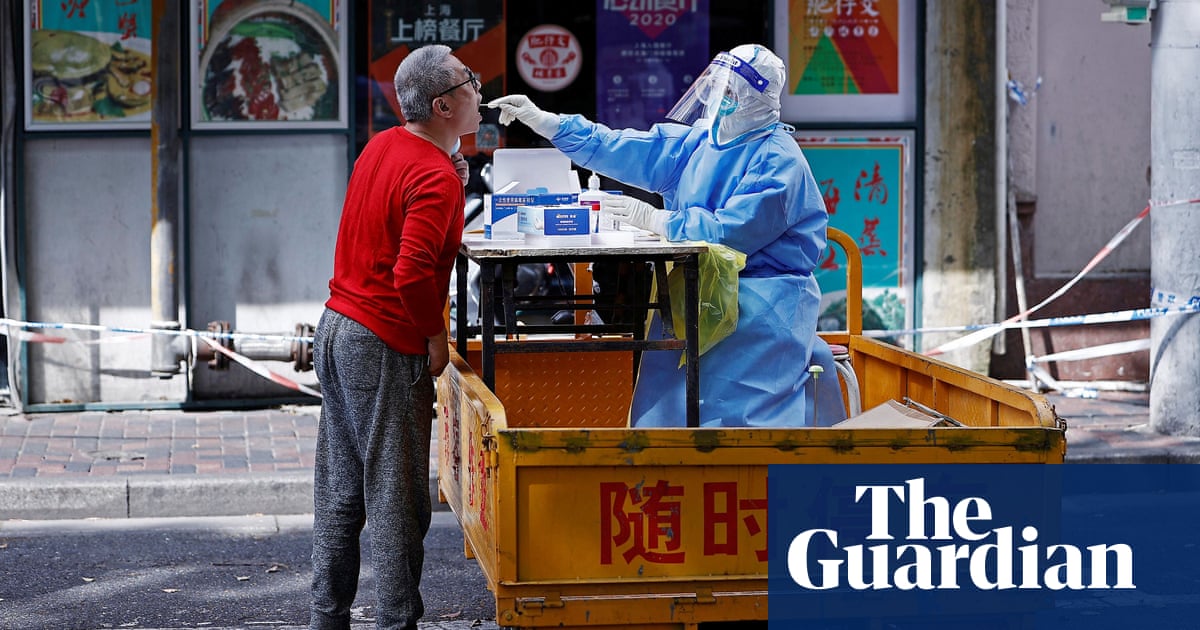In China, citizens are seething with anger; they are texting protest notes on Weibo
over their plight due to their country’s zero-Covid policy. In fact, from Beijing to
Shanghai to Jilin and border towns of Ruili and Manzhouli—there is a common
Chinese approach to deal with the highly infectious Omicron variant: Undertake
tougher lockdown measures and punish those who violate zero-Covid approach of
the government. These measures have led even the World Health Organization
Chief to describe China’s zero-Covid goal as unsustainable.
China, defiantly says it can protect the lives of people only through its harsher
approach towards the epidemic which has though led to the death of over 15,000
people (Chinese data) so far in the country. However, despite such high claims of
saving people and making virtues out of China’s lockdown, there is one glaring
cruelty, which may shame even Beijing’s diehard acolytes.
A large number of people aged 60 and above have not been vaccinated in China.
This is not propaganda, but an irrefutable truth. According to the National Health
Commission of the PRC, till March 31, as many as 50 percent of people aged 80
and 80 have been vaccinated across mainland China. This has led many critics to
question Chinese authorities’ motives.
They are questioning why with an abundant supply of homegrown vaccines and
vast enforcement personnel’s presence, so many people over 60s have remained
unvaccinated in China. A few days ago, Liang Wanniam, the head of the National
Health Commission’s experts panel said China has ample medical resources like
hospital beds and antiviral pills. In this background, if a vast majority of people aged
over 60s have not been inoculated till now, it questions China’s claim of vaccinating
more than 88 per cent of its population. Of this, about 216 million people aged 60
and above are fully vaccinated.
Meaning is clear: China has either erred in giving no priority to the elderly in getting
them vaccinated or it has deliberately left the aged people out of protection radar,
considering them a burden on its economy. Remember, China has built its
economy on a labour-intensive programme that takes into account people below
age 60. Like many developing countries, it has no social safety net to protect the
aged. But then many people in China reach retirement age without having the
necessary resources to fund their pensions and health care.
As a result, the cost of elderly care is borne by families and the state. According to
the National Bureau of Statistics of China, in about 25 years, one-third of the
country’s population will be that of retirees, and their living and health care
expenses will take up one-fourth of its GDP. Already, the increasing elderly
population has reduced the supply of the labour force and has enhanced the
burden on families. This problem is pervasive in Chinese metropolises, where
aging population rates are above the national average. In cities like Beijing, as per
a data from the municipal government, the total number of residents aged 60 or
above stood at 4.29 million, 0.9 per cent higher the national average. This has a
consequential impact on health care management of the city in the country where
elderly depend on pensions, family care and income from work. If China’s state
media, Xinhua News Agency report is to be believed, from 2005 to 2016, the
average monthly pension payment for retirees increased to about US $350 (2,400
RMB) from just under US $100 (640 RMB). Since there is no stopping the growth of
elderly people in Chinese society, there is a fear it will have a grave impact on the
long-term balanced development of the country.
To a large extent, it has resulted in the development of societal side-effects. Elderly
people are not taken care of as per the guideline issued by the Central Committee
of the Communist Party of China in May 2021. The guideline outlines a range of
measures to meet the needs of the elderly in a coordinated manner. Among several
measures listed for the care of elderly people, the guideline talks about shielding
elderly people from chronic diseases through early monitoring and interventions.
But how much such measures are being followed by Chinese authorities, can be
explained in the higher number of elderly people’s death due to Covid. A sizable
number of elderly patients who died in a hospital in Shanghai due to Covid-19
infections, were those who couldn’t be inoculated. According to an April 16 report of
BBC, dozens of elderly patients at the Shanghai Donghai hospital died after
contracting Covid-19.
An article published by Chinese news outlet Caixin, where it described the deaths
and infections—was taken down immediately after it appeared on its website in
April. Hiding the truth from its people is not a new phenomenon in China. Yet
what’s disappointing is that President Xi Jinping continues to harangue that ‘victory
comes with perseverance,’ obscuring the fact that his policy has failed to reach the
ears of authorities who have deliberately left the elderly people die due to Covid-19.
Pressures are being built on students and employees at state-owned enterprises to
get vaccinated, but the same approach has been missing in the case of elderly
people. That means, Chinese society doesn’t want to invest time, money for the
care of elderly people in view of the fact that their age has rendered them useless
and unproductive for the country and the society.

Is China deliberately leaving its aged population out of vaccination cover?
by
Tags:
Leave a Reply